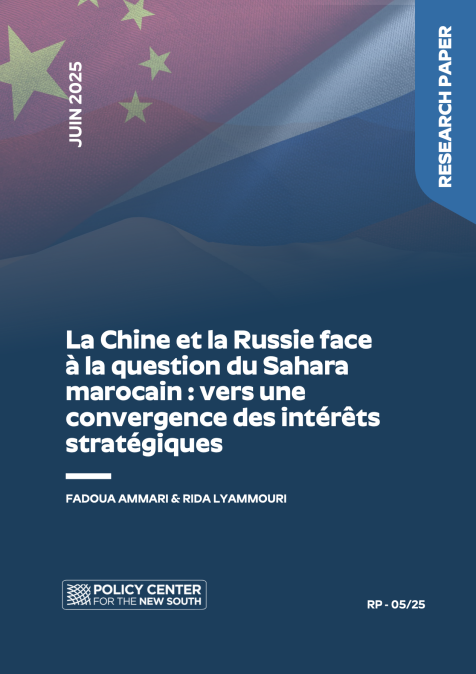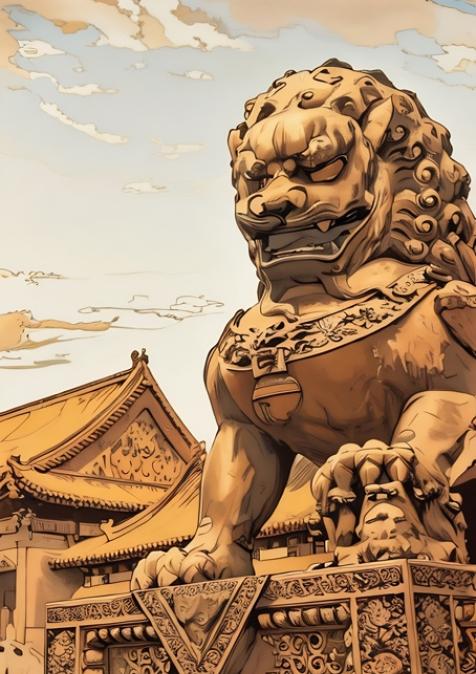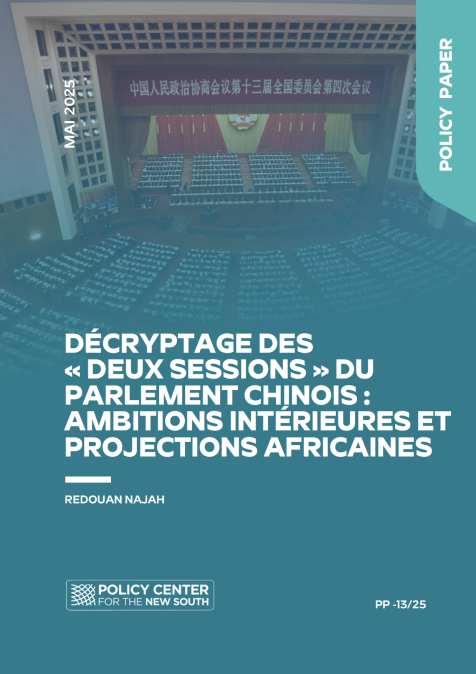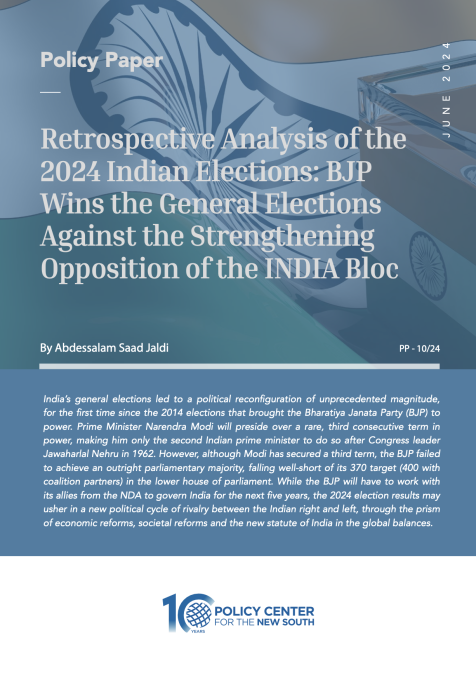Publications /
Opinion
Kim Jong-un, the dictator of North Korea, disappeared from public view after an appearance at a Workers' Party politburo meeting on April 11. The unpredictable leader did not appear to celebrate the anniversary of his grandfather’s birthday four days later, an important holiday for the nation. Then Mr Kim missed Military Foundation Day, on which he usually honors the military, the foundation of his absolute power. Rumors began to spread. The dictator was gravely ill, possibly dying. Asian news outlets reported that the chain smoking, overweight, leader had heart surgery on April 12.
On April 21 and 23, an American satellite detected Kim’s train in Wonsan, a resort town 200 kilometers east of Pyongyang. The question, which not even the White House could answer: was the dictator transported to Wonsan to recuperate? Trump’s National Security Adviser, Robert O’Brien, said the U.S. was closely watching the situation. Who would inherit the power if the ruthless ruler should die? His sister Kim Yo-jong? Or would a power struggle erupt, with dozens of nuclear weapons at stake? The US President wrote to the dictator on January 8, supposedly Mr Kim’s 36th birthday. More than once Trump has confirmed “I like him, and he likes me”. Kim was obviously too distracted to honor Trump words with an answer. Kim Yo-jong did send a message to Washington, expressing her “sincere gratitude” to the US President for his message, which, she said, reflected the strong relationship between the two leaders.
Mr Kim and Mr Trump have met three times since 2018, and since their last, sobering, meeting in Vietnam, have exchanged some correspondence. But Mr Kim has made it clear to Washington that he is no longer interested in diplomacy with the U.S., unless it changes its hostile policies, including sanctions. In recent months, the North Korean military has fired several short-range weapons, which were largely ignored by Trump. But what if Pyongyang decided to use the COVID-19 crisis and dared to test-fire an intercontinental ballistic missile? How would Washington react if Mr Kim provokes with it with underground nuclear test? In January of this year, the Pentagon’s Vice Chairman of the Joint Chiefs of Staff, John E. Hyten, alerted the nation in a speech at the Center for Strategic & International Studies “North Korea is building new missiles, new capabilities, new weapons as fast as anybody on the planet with the 115th most powerful economy in the world,” he said. “Speed itself is efficiency. They learned how to go fast”.
‘Advanced, Underestimated, and Highly Lethal’
General Hyten, the second highest ranked officer in the U.S. Armed Forces, did not discuss the 40 to 60 nuclear warheads the North Koreans are estimated to possess. Nor did he mention another danger—chemical and biological weapons. North Korea is “far more likely to use biological weapons than nuclear weapons”, predicted Andrew C. Weber, a Pentagon official in charge of the nuclear, chemical and biological defense programs under President Barack Obama. “The program is advanced, underestimated and highly lethal.” In January 2019, the New York Times noted that according to an analysis published by the Middlebury Institute of International Studies at Monterey, North Korea was collaborating with foreign researchers to acquire expertise biotechnology skills and build machinery. Satellite images and internet scrutiny of North Korea suggest that Pyongyang is “newly interested in biotechnology and germ advances”. Experts, including those from the intelligence community, estimate that North Korea has a stockpile of about 2500 to 5000 metric tons of various types of chemical weapons, including blister, blood and vomiting agents, mustard gas, VX, sarin and choking agents, and some biological weapons including anthrax, smallpox, and cholera.- In the time of the terrifying coronavirus, it is an unpleasant thought or vision.
Chemical Help For Damascus
North Korea is thought to be among the world’s largest possessors of chemical weapons, ranking third after the US and Russia. Mr Kim’s nation remains one of the few countries which has not signed the Chemical Weapons Convention, although Pyongyang has agreed to the Geneva Protocol, which prohibits the use of chemical weapons in warfare, but does not prevent a state from producing or possessing them. In February 2018, a leaked United Nations report found that North Korea had supplied the Syrian regime with equipment which can be used in the production of chemical weapons. North Korea also sent technicians and supplied missiles. The U.S. intelligence community’s 2019 World Wide Threat Assessment noted that North Korea “used chemical weapons on the battlefield or in assassination operations during the past two years”. One case caused condemnation around the world:the assassination of Kim Jong-nam, Kim Jong-un’s half-brother, who was attacked at Kuala Lumpur airport in February 2017. The murder did not discourage Donald Trump from courting the dictator, if only Chairman Kim would eliminate his nuclear arsenal.
Plague and Hemorrhagic Fever
Despite the deadly nature of biological weapons—a “gallon of anthrax if suitably distributed could end human life on earth”—the Trump administration has paid scant attention to North Korea’s pursuit of living weapons. South Korea has identified at least ten facilities in the north that could be involved in research and production of more than a dozen biological agents, including those that cause the plague and hemorrhagic fever. The Seoul government-sponsored Korea Research Institute knows of four military bases equipped with chemical weapons. Two facilities are reportedly equipped to prepare and fill artillery shells with chemical weapon agents. U.S. military authorities believe long-range artillery is deployed in the Korean Demilitarized Zone, along with ballistic missiles capable of delivering chemical warfare agents. Germ production is usually small scale and far less expensive than creating nuclear arms, a kind of “poor man’s weapon”, stated the Asian Times.
Challenges Ahead
How do troops react to biological weapons, for which traditional gasmasks do not provide protection? Since 2004, American forces stationed in South Korea presumably are vaccinated against smallpox and anthrax. But experts also worry about dramatic ramifications for the civilian population following offensive strikes and agents of unusual lethality, especially the smallpox virus, which spreads person-to-person and kills a third of its victims. Bruce Bennett, a defense researcher at the RAND corporation said defectors from the North described witnessing the testing of biological agents on political prisoners. Experts have long suspected that the North harbors the germ, which in 1980 was declared eradicated from human populations.
At the end of last year, Mr Kim asked his pen pal in Washington to come up with new proposals to salvage the suspended negotiations between North Korea and the U.S. Apparently, the White House signaled no appeasement, and the dictator, realizing that his romance with Trump had ended, vowed to bolster his nuclear deterrent, said he would unveil a “new strategic weapon”, and warned he would no longer be bound by a major weapons moratorium. Much now depends on whether Mr Kim appear alive, or is buried with military honors.
The opinions expressed in this article belong to the author.








